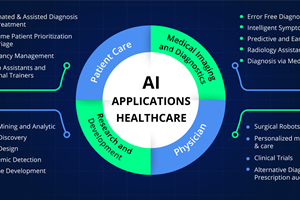The fallout of the pandemic coupled with economic uncertainty has left the life sciences and healthcare sectors more stretched than ever, from pharmaceutical manufacturers to healthcare practitioners on the front line with patients. The industry and its workforce are faced with the challenge of meeting new expectations for the faster development and roll out of new medicines, all while demand for care steadily increases and the global population ages.
While this provides a distinctly challenging backdrop, there are levers which can be pulled to ease the strain currently faced and unlock a new path to growth for the sector - if they can be implemented effectively.
Digitisation – from digital treatments and therapies, all the way to launching research labs in the metaverse – needs to be embraced by the pharma industry as a way to transform working practices and address the capacity crisis. To do so, however, a number of obstacles will need to be overcome.
Innovation through collaboration
The Covid-19 pandemic was a watershed moment for innovation in life sciences, and we’re seeing the roll-out of digital technologies continue at pace even as things return somewhat to normal. But this transition will need to be accelerated further and embedded more deliberately up and down the value chain to address long term changes in patient behaviours and demographics. Embracing digitisation and industry-wide collaboration will allow pharma to be more integrated into the global healthcare experience and support healthcare professionals (HCPs) and patients more holistically.
Digital innovation will have a critical role to play in underserved patient pathways, improving the way HCPs access new therapies and information, and ultimately transforming patient care. The digital capabilities built over the course of the pandemic, beginning with HCP engagement and omnichannel capabilities, but rapidly expanding, are being enhanced to provide us with a real opportunity to bring together pharma, healthcare, regulators, and the patient to become a genuinely patient-centric industry.
Technology will also bring us innovations which could play a valuable role, particularly in addressing rarer or more challenging patient needs. We’re already starting to see the benefits of this with cancer diagnoses and with the increasing use of AI in drug discovery, for which digital technology is set to explode in use and value over the next few years.
When it comes to research and development, a process underpinned by strong digital infrastructure will enable collaboration across geographies at a pace previously unseen. In the future, the metaverse could unlock drug and treatment development as a truly collaborative cross-border endeavour, with more diverse and effective clinical trials and a more connected and meaningful patient experience.
Many of the digital treatments and innovations currently on offer have been developed through smaller, digital-first players and start-ups, which benefit from niche expertise and talent, but often lack the resources to scale and grow to meet demand and offer treatments widely. This represents an opportunity for the ecosystem, from large multinationals to micro businesses, to embrace collaboration through partnerships – providing the structure and scale of supply chains to grow smaller businesses, while larger ones embrace the skills and innovative technology on offer.
Embracing continuous reinvention
The success of a digitised and integrated ecosystem for the life sciences sector, however, relies on companies committing to the infrastructure, talent, and security which will be needed to make genuine progress. There needs to be a corporate mindset shift alongside digitisation projects like transitioning to the cloud: this is not just an IT upgrade to reduce costs, but rather a mechanism to drive new ways of data-enabled working across the entire organisation. Digitisation is not a bolt-on process – instead, it will require a total reinvention of ways of working for the industry to improve patient outcomes and harness untapped growth.
Underpinning this ecosystem is the need for security along the supply chain – security of product and security of data. As therapies become more complex, pressure on supply chains will increase, requiring an end-to-end approach that drives consistency and certainty of supply. It will also require businesses to build the core technology into their models which will allow the sharing and usage of data in a way which is secure, agile, and automated where necessary. This will allow businesses to develop new capabilities at speed and collaborate across functions and borders without undermining security concerns.
Digitisation cannot be considered a siloed project for pharmaceutical companies – it is business-critical. In order to ease capacity challenges and grow, digitisation must be embraced as a transformation of the way businesses operate. In doing so, organisations have the opportunity to revolutionise working practices, increase the speed at which new treatments are brought to market and identify new ways to meet changing patient needs – creating a life sciences sector which is genuinely agile, patient-centric, and well placed for future growth.
Andrew Dowd












